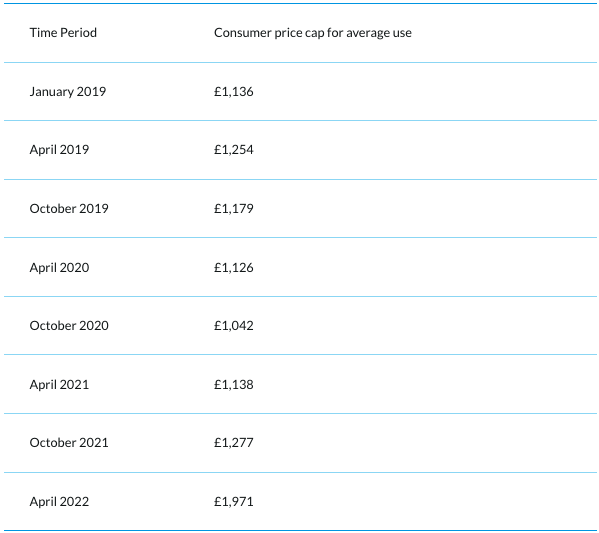Think tanks call for government to ensure secure gas supplies as market crisis deepens

Energy wonks have called on the government to ensure secure gas supplies this winter – with analysts forecasting the consumer price cap could spike to £3,000 per year in October.
Andy Mayer, energy analyst at the Institute of Economic Affairs, argued the UK should look for new trading partners to offset Russian imports into Europe.
He also suggested the UK should green light more domestic wells to boost flows ahead of next winter.
Currently, the government is committed to long-term environmental goals such as net zero carbon emissions by 2050, and the phasing out of coal by the end of the decade.
He told City A.M. “security of supply today requires gas”, and warned that renewables and nuclear projects will “take years to build” – while still requiring gas as a back up energy source.
The government has insisted its current gas supplies remain secure, however fears over global shortages have been exacerbated by Russia’s invasion of inUkraine and subsequent Western sanctions.
Following the decision of the UK and US to announce restrictions on Russian energy supplies, wholesale prices peaked at £8 per therm last week.
Investec, Cornwall Insight, Goldman Sachs and Energy UK has since predicted the price cap could spike to £3,000 per year in October, following a 54 per cent hike in April.
This could deeply exacerbate the cost-of-living crisis alongside record petrol prices and grocery inflation.
While Mayer considered renewables key for a greener future, he stressed it was important the UK’s energy strategy was driven by the market rather than Downing Street targets.
Otherwise, the energy transition to a greener future would not be secure, with the country vulnerable to larger rival markets.
He said: “We are in this mess because previous governments picked technology, production, and climate targets, not a carbon price and leaving delivery of the best path to the market. If the new strategy is even more of the same, we will be decarbonising as insecurely and expensively as possible, to the benefit not just of Russia, but China, the main player in most renewable supply chains. This would not be a win for national security.”
John Macdonald, director of strategy at the Adam Smith Institute, told City A.M. believed “on-shore tapping for oil and gas might provide some price stability in the next the next two to three years”.
The UK remains highly vulnerable to shocks – with nearly 30 energy suppliers collapsing in the past six months, chiefly due to insufficient hedging.
Last week, Business Secretary Kwasi Kwarteng argued in The House of Commons that the UK remains committed to North Sea oil and gas production – which supplies 47 per cent of the UK’s gas.
The UK continues to purchase four per cent of its gas supplies from Russia – while also purchasing both natural gas and liquefied natural gas (LNG) from countries such as Qatar, UAE, Norway and Trinidad and Tobago.

When it came to resolving the energy market beyond the current crisis, Macdonald called on the UK to ramp up its nuclear power capabilities .
This follows Prime Minister Boris Johnhson revealing he wanted to resolve “decades of neglect” towards nuclear power in his latest column for The Daily Telegraph,
He said: “The the target must – as the Prime Minister says – be to ‘reverse that historic mistake’ of spurning nuclear energy if we are to transition to green, efficient energy production.”
Currently, the government is committed to completing the development of Hinkley Point C and starting construction of Sizewell C.
It has also encouraged Rolls-Royce’s development of small, modular reactors, with the company assessing potential sites in England and Wales.
However, nuclear power is still only responsible for 21 per cent of the UK’s energy generation, third behind wind and natural gas.
The government is also set to phase out half of its capacity by 2025 – and 12 reactors are planned to close over the next 13 years at the expense of nearly 8,000 MGW of power.
Macdonald said: “As things currently stand, nuclear energy is still relatively expensive. The government must look into making construction of nuclear plants eligible for the private sector, and the regulatory regime around waste storage if we are to have clean, cheap and stable energy production in the UK in the next 10 years.”
Last October, Kwarteng announced measures to get projects off the ground more quickly and cut out foreign investment into energy projects.
Through the regulatory asset base model, the government hopes to use public money to fund the initial stage of building power plants to encourage private investment.
This strategy was used for both the Thames Tideway Tunnel and London Heathrow’s Terminal 5.
Johnson is set to outline the UK’s energy strategy later this month, following Russia’s invasion of Ukraine and carnage across the domestic energy industry which has seen 29 suppliers collapse since September.